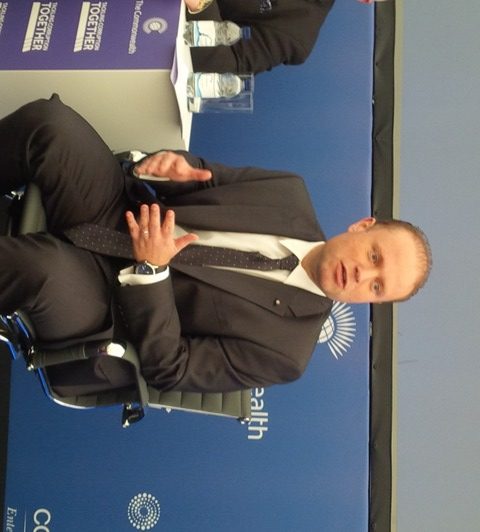 Malta's Joseph Muscat said the Panama Papers hurt Malta 'politically and personally' [photo: Debbie Ransome]
Malta's Joseph Muscat said the Panama Papers hurt Malta 'politically and personally' [photo: Debbie Ransome]
If a week is a long time in politics, as Harold Wilson is supposed to have said, then November must seem like a lifetime ago for Joseph Muscat. Back then, the prime minister of Malta was briefly basking in the world spotlight, a rare thing for the island nation, as host of a Commonwealth heads of government meeting that was generally considered a success.
Fast forward a few months and Muscat had thousands of demonstrators outside his window calling for his resignation as he became the latest leader to be embroiled in the revelations in the Panama Papers, the leak of 11.5m files from one of the world’s biggest offshore legal firms, Mossack Fonseca, in a publishing coup led by the International Consortium of Investigative Journalists (ICIJ), together with the German newspaper Süddeutsche Zeitung and more than 100 other media partners.
The opposition leader, Simon Busuttil, declared of Muscat: ‘You are shaming Malta. You have lost the moral authority to govern,’ Reuters reported in early April. The protesters filling a square in Malta’s capital, Valletta, were demanding Muscat’s resignation after two of his senior Labour Party allies – the health and energy minister, Konrad Mizzi, and the prime minister’s chief of staff, Keith Schembri – were revealed in the Panama Papers to have secret offshore accounts and shell companies. Mizzi was the only serving minister in the European Union to be named in the Panama Papers.
Mizzi handled some of the government’s biggest contracts, including the part-privatisation of the health service and the energy provider Enemalta, and an oil-hedging agreement with Azerbaijan. The Australian Financial Review reported that a Malta financial advisory firm, Nexia, began setting up the Panama companies just five days after they won power in March 2013.
Ann Fenech, president of the Nationalist Party’s executive council, described the affair as the biggest scandal in Malta’s political history, the Malta Independent reported.
In fact, Mizzi had admitted setting up the shell company in Panama and a trust in New Zealand, which held the shell company, in February after a blogger and Malta Independent columnist, Daphne Caruana Galizia, broke the news of Schembri and his overseas interests. Mizzi denied any wrongdoing and said he was subjecting himself to an independent audit. Schembri had also set up a company and trust in Panama. He also denies any wrongdoing and said he would be commissioning an independent audit.
But as Kurt Sansone asked in the Times of Malta, why did they both go to such efforts to hide their identity? There is also the question of who is the beneficial owner of a third Panama company revealed in the leak.
Busuttil said that though the scandal was known in Malta in February, Muscat had promoted Mizzi to deputy leader of the Labour Party, and warned that the prime minister’s inaction was undermining Malta’s reputation. ‘How can the prime minister defend Malta’s financial services industry in the EU when his fellow minister has a secret company in Panama?’ Busuttil asked.
The Maltese government eventually faced a vote of no confidence, with Busuttil arguing in the House of Representatives that there was no logical reason why a minister and a chief of staff would set up companies in Panama and attempt to set up bank accounts in eight countries. However, Muscat, who commands a solid majority in parliament, comfortably won the vote after 13 hours of debate.
Busuttil, however, said the government was ‘in denial’ over the Panama Papers. He said: ‘Our reality is the people’s reality, but the prime minister is living in a different world where everything goes. Three years after his election, Dr Muscat is completely detached from reality.’
In a reshuffle in early May, Mizzi lost both his energy and health portfolios, but remained in the cabinet as minister without portfolio, the Times of Malta reported. Muscat said Mizzi would also resign as the Labour Party deputy leader. Schembri would carry on, the prime minister said, saying his chief of staff was ‘not a political figure and he enjoys my trust.’
Nevertheless, Muscat said: ‘The Panama affair hurt us—politically and personally. Although there was nothing illegal, we expect better behaviour.’



